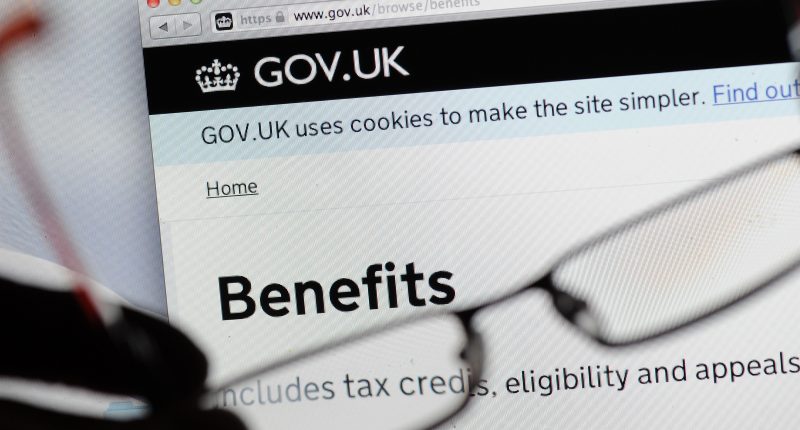MILLIONS of parents are set to get a bank boost in April when benefit rates go up.
Benefit payments will rise by 6.7%, in line with the consumer price index (CPI) level of inflation for September 2023.
But remember, the exact amount your payments will rise by will depend on whether you qualify for extra elements as well as your financial circumstances.
Don’t forget to check that you’re getting all the benefits you’re entitled to by using a free benefits checker, as this could boost your budget more.
Here’s how much your child benefit, child tax credit, carer’s allowance or Universal Credit childcare element payments will rise by next year.
Child benefit
Child benefit is paid to parents to help with the costs of childcare.
Read more in money
Payments are usually made to you from the government every four weeks.
You normally qualify for child benefit if you live in the UK and are responsible for a child under 16.
There are two child benefit rates, one for the eldest child and another for each further child.
The current rate for your eldest or only child is £24 per week. That’s around £96 a month or £1,251.43 a year.
Most read in Money
But, from April 2024 the rate for your eldest or only child will go up to £25.60 a week – equating to around £102.40 a month or £1,334.86 a year.
This is an increase of £1.60 a week, £6.40 a month and £83.43 a year.
For each of your other children, it’s currently £15.90 a week – equating to around £63.60 a month or £829.07 a year.
And, from next April for every other child, you’ll get £16.95 a week, which is £67.80 a month and £883.82 per year.
That’s an extra £1.05 a week, £4.20 a month, and £54.75 a year.
Beware that if either parent or carer starts earning over £50,000, they have to start paying the high income child benefit charge.
This means you have to pay back 1% of your child benefit for every £100 of income earned over the £50,000 threshold.
Once you reach £60,000 of yearly income you have to repay the full amount of child benefit received.
Parents have been caught out by the complicated rules and extra charge and landed with bills for thousands of pounds.
Carer’s allowance
Carer’s allowance is a benefit designed to help people who have caring responsibilities.
You can claim carer’s allowance if you care for someone at least 35 hours a week and they get certain benefits.
The rate will increase from £76.75 a week to £81.89.
To qualify, the person you care for must already get one of these benefits:
- Personal independence payment (PIP) – daily living component
- Disability living allowance – the middle or highest care rate
- Attendance allowance
- Constant attendance allowance at or above the normal maximum rate with an Industrial Injuries Disablement Benefit
- Constant attendance allowance at the basic (full day) rate with a war disablement pension
- Armed forces independence payment
You don’t have to be related to the person or live with them to apply.
But if you share caring responsibilities with someone else, only one of you can claim.
The type of care you provide can vary, but includes things such as helping with washing or cooking, taking the person to medical appointments or helping out with household tasks such as shopping or organising bills.
Child tax credit
Child tax credit is a benefit that helps with the costs of raising a child if you’re on a low income.
Families on claiming working tax credit can get child tax credits for each child or young person they’re responsible for until August 31 after they turn 16, or up to 20 if they’re in full-time education.
The following payment rates will change when the 2024/25 tax year officially begins:
- The child tax credit family element remains unchanged at £545
- The child element will rise to £3,455 a year – up from £3,235 a year
- The disabled child rate will rise to £4,170 a year – up from £3,905 a year
- The severely disabled child rate will rise to £1,680 a year – up from £1,575 a year
You don’t need to be working to claim child tax credits, but if you are you need to earn less than a certain amount.
The amount you can earn depends on your circumstances. HMRC looks at things like:
- The number of hours you work
- How many children you have
- If you’re a single parent
But it’s important to note that you can’t apply for tax credits anymore as they’re a legacy benefit and have been replaced by Universal Credit for new claimants.
As tax credits are left over from the old welfare system, you can’t claim them at the same time as Universal Credit.
Your tax credits will stop if you or your partner apply for Universal Credit, so you should work out which is a better option for your finances before swapping.
Universal Credit
Universal Credit can help you get by if you’re on a low income or in ill health.
Even families on higher incomes over £50,000 with childcare and rent costs could get the help, so it’s always worth checking.
Exactly how much Universal Credit you get depends on your personal circumstances.
Universal Credit is replacing six so-called legacy benefits and comes as a single payment each month, similar to a monthly salary you get from a job.
Standard allowance (per month)
- For those single and aged under 25, the standard allowance will rise from £292.11 to £311.68
- For those single and aged 25 or over, the standard allowance will rise from £368.74 to £393.45
- For joint claimants both under 25, the standard allowance will rise from £458.51 to £489.23
- For joint claimants where one or both are 25 or over, the standard allowance will rise from £578.82 to £617.6
Extra amounts for children
- For those with a first child born before April 6, 2017, the extra amount will go up from £315 to £333.33
- For those with a child born on or after April 6, 2017 or second child and subsequent child, the extra amount will go up from £269.58 to £287.92
- For those with a disabled child, the lower rate addition payment will rise from £146.31 to £156.11 and the higher rate from £456.89 to £487.58
Childcare costs element
Working parents can claim up to 85% of childcare costs, up to a maximum of £951 a month for one child, or £1,630 a month for two or more children.
The government now pays parents who start work or increase their work hours up front instead of in arrears.
Read more on The Sun
But the maximum you can claim for one child will rise to £1,014.63 a month for one child, or £1,739.37 a month for two or more children from April 2024.
We’ve already listed all the other benefit payments rising in April 2024.









